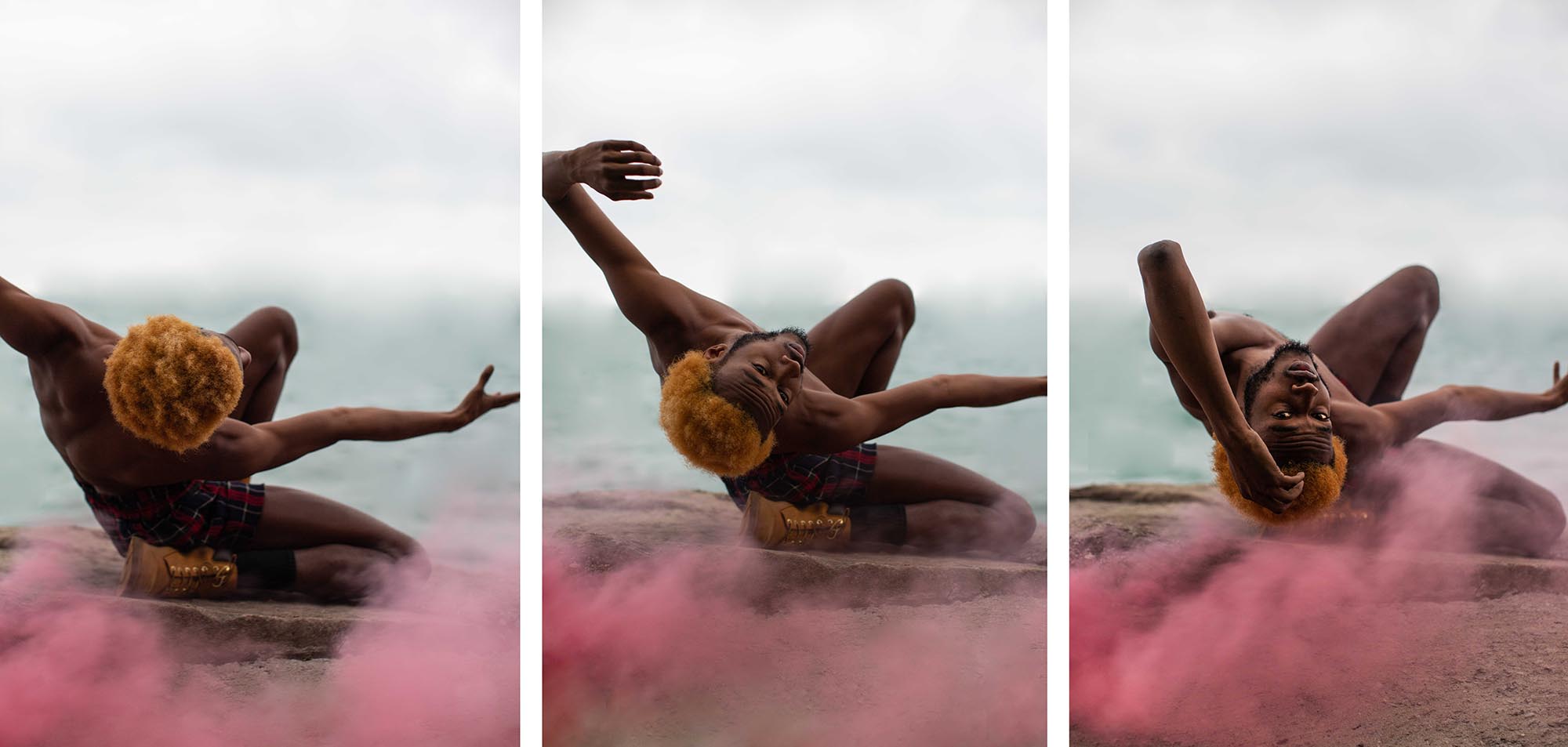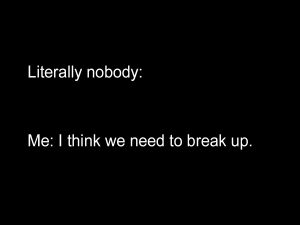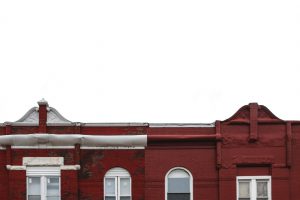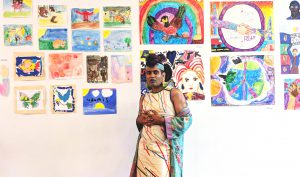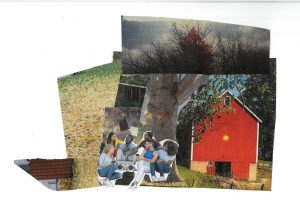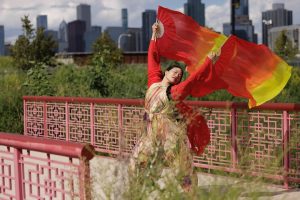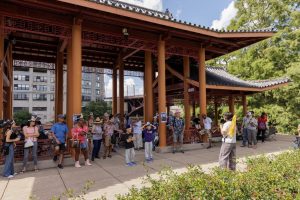Erik Lamar Wallace II, a.k.a Mister Wallace, a.k.a It Girl, a.k.a Mister Cool Mom, is about to blow up. Erik Lamar Wallace II, a.k.a Mister Wallace, a.k.a It Girl, a.k.a Mister Cool Mom, is already iconic.
Rapper, singer, producer, label founder, gender defier, culture maker, makes it all fashion, cosmic being, Wallace talks like a soothsayer. Which is to say she talks fast. She talks deliberately. She says about six things at once. They all hold together with an audible alchemy that precedes logic, but they hold there too, if you can catch it. She declares. The declarations sound like spells. Like whole hands and fingers reaching into a future only she can see to extract truths for us to roll around in our palms like rocks that turn to sand if you’re not quick.
This is also how she performs.
Wallace co-founded Futurehood with DJ/producer aCe a.k.a aCeb00mbaP (Anthony Pabey) in 2016. With artists like Roy Kinsey, Hijo Prodigo, Rozay Labeija, and Wallace themself on the roster, as a record label, Futurehood is the vehicle responsible for some of the most cogent, relevant, and hype-worthy sounds, visuals, and artists to come out of the hip-hop, bounce, and house scenes in the last few years.
Futurehood, however, is much more than just a label. It is, in Wallace’s words, ” a vessel.” A vessel to a future that is already here and, most importantly, for Queer POC artists to form, evolve, and produce work that, in turn, produces and pushes forward culture and conversation–into that future.
This Friday, November 23, Futurehood hosts a showcase at Subterranean as part of the Red Bull Music Festival, featuring Wallace, Hijo Prodigo, aCeb00mBap, Roy Kinsey, Rae Chardonnay, The Vixen, TRQPiTECA, Blu Bone, Kidd Kenn, and KC Ortiz.
On the heels of this occasion, Wallace lay across a brown velour sofa to discuss the origin story of Mister Wallace, the future of Futurehood, visions of queer utopias, and the power of the Rave.
This interview has been edited for clarity and length. Mister Wallace uses all pronouns.
Chelsea Ross: I’ve been excited to have this conversation because we’ve known each other for a while, but I realized there’s a lot that I don’t know about you. We were talking a moment ago about where you’re from, and how you came up. I’d like to know more of that story. How you came to be Mister Wallace, Mister Cool Mom, It Girl…
Erik Lamar Wallace II: I was just telling some neighbors last night, when I was a kid, when I was like a baby, I was immediately drawn to Michael Jackson. As corny or cliché as it might sound, I guess the Mister Wallace story starts with Michael Jackson. But like, King of Pop, so, whose story doesn’t start with Michael Jackson? I’m pretty sure Beyoncé’s story starts with Michael Jackson.
CR: I think that’s probably true. Was there a specific moment—a song, or a video, or a move—that triggered you?
ELW II: The glove. I remember seeing the glove as a kid and being really entranced with the way that he would move his fingers. Those smallest gestures, and how big they became with the glove. And then obviously the footwork, and the white sock with the patent leather. And then the “Rock With You” music video with, like, the blue and silver outfit. Those were just like, iconic images.
CR: Yeah, they just burn into your head.
ELW II: That resonated with my spirit. I was like, “that’s Erik,” or “that’s little Erik,” as they called me, because my father’s name is Erik Lamar Wallace, and I’m Erik Lamar Wallace II. So, yeah, Michael Jackson’s silhouette gestures, the hair, the hat, the gloves, the shoes, the pointed toe. And then the grandness of the music videos and the performances, the pandemonium around the person. But also the generosity and the humbleness and the willingness to just feed love back into people. All of those things really spoke to me, more so than, like the church. My family was very Christian, so I grew up going to churches. I really got into singing the songs, and the theatrics of church, because I like performance, and I like theatrics, obviously. I was always drawn to that. But I didn’t feel like, an inner call to Jesus Christ. I felt an inner call to Michael Jackson.
CR: Michael Jackson is your spirit animal.
ELW II: I don’t like saying human beings are my spirit animal. And I definitely don’t like saying Black people are a spirit animal. I attacked a girl online for that. But I would say, like a messiah type, or a Jesus, a Christ-like individual. To me, that was exemplified in the behavior of Michael Jackson when I was a kid. The love. I wanted to feel love and to give love. I was always obsessed with that concept, since I was a small child.
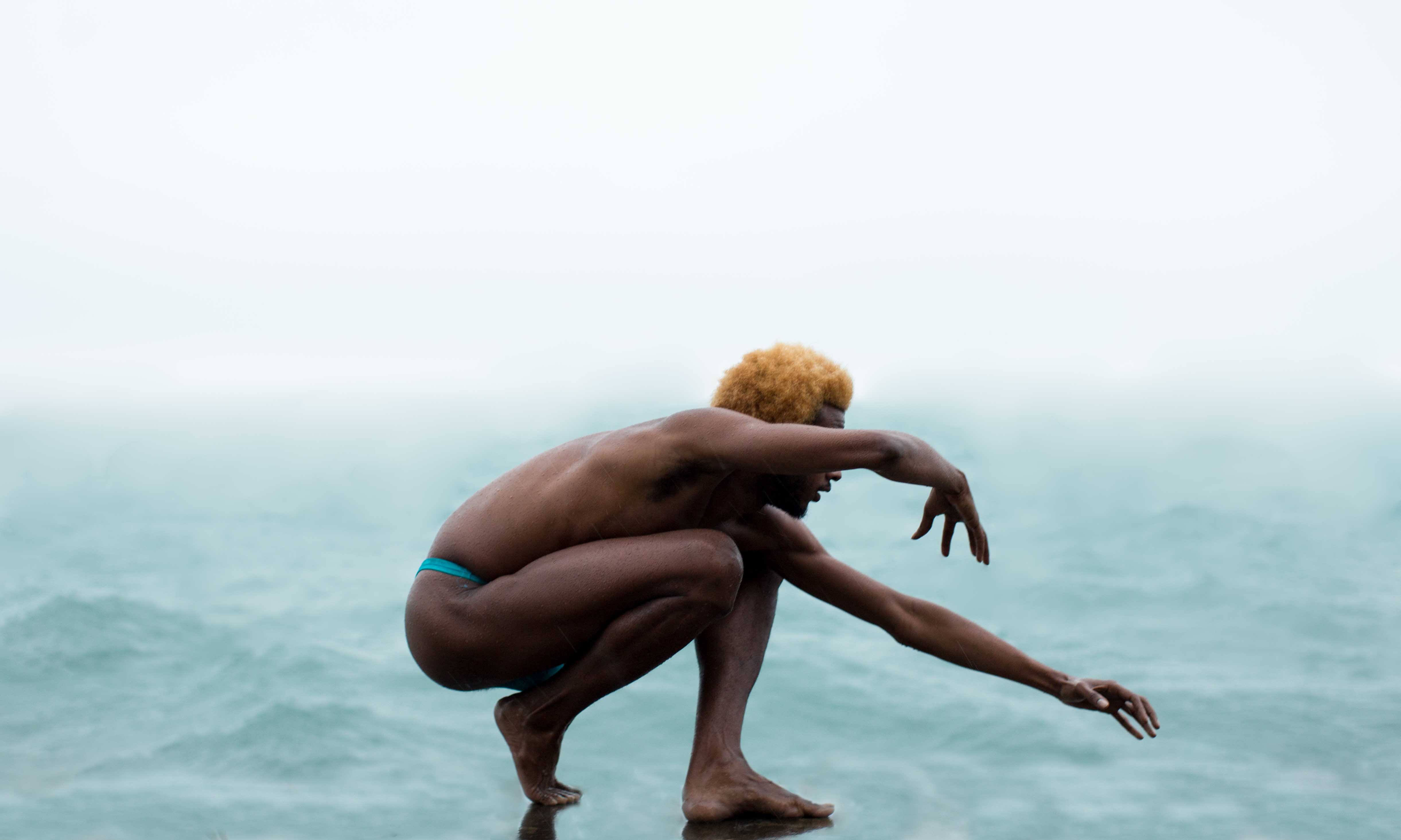
CR: How does that play into your practice now? In terms of your own performance and work, but also how you cultivate and manage Futurehood?
ELW II: I feel like I’ve always operated from a place of love, even though I have definitely been stern or reckless with my words in the past. The way I empower or employ people to work for the mission of Futurehood is by employing them to work for themselves. And to just love them, and help them express themselves in ways in which they want to express themselves. So for a long time, and even to this day, a lot of what I do as Futurehood is actually done by my hands, because I just don’t like to ask people to do things unless they really want to do them and I have a way to compensate them for it.
CR: Yeah, absolutely.
ELW II: But I’m not doing all of this alone. It’s always a collaboration. If you make space for people to do what they know innately, for what they are capable of doing or want to do, then they can naturally assume those roles, and be productive and contribute to something that is not just going to feed them, but feed all of us.
CR: Let’s back up a little. We’ve been talking about Futurehood, but we haven’t really discussed what Futurehood is. I’m really interested to hear you talk about that.
ELW II: I’m interested to hear me talk about what Futurehood is, too. I’m one of those people who learns by talking. I should probably just record myself talking to the wall.
CR: Well, we’re recording.
ELW II: Right now? Today? Futurehood is, today as it was yesterday, as it will be tomorrow, a vessel. And that vessel is a vessel that takes you from a place of desire to a place of liberation, where you’re at peace, and you’re just able to play. For a long time, I struggled with what I want to be when I grow up. The whole, “I wanna be Michael Jackson” thing did not last. When I was in high school I auditioned for American Idol, and when I did not get on season five, I was like there is no track for me to become that person.
CR: As a singer?
ELW II: How else do you audition for American Idol?
Pause
ELW II: I sang “Rock With You” by Michael Jackson, so when I didn’t get on to the show as the Michael Jackson fantasy that I always had, I decided that that was not gonna be my future. When I started working with aCeb00mbaP on Banjee Report, and Men’s Room, and expressing myself through an art collective, given the space to express myself in the ways in which I saw myself inside, but not necessarily how people saw me outside, that gave me the opportunity to be Mister Wallace, and to inspire others to be more of themselves. And that’s what Futurehood is. Because the more that you are of yourself, the more you have to offer, and the world needs a lot. Like, I think what we’re seeing right now with the conditions, or temperature of society, is a lack, or a feeling of scarcity. And a lot of those constructions, whether gender or race, are crumbling because they no longer sustain the majority of us. So I want Futurehood to be a media platform for artists like myself, and to be a pathway for young people who have a talent in the arts to express those talents, be paid for those expressions, and to be able to sustain their lives. Whether that’s Futurehood becoming more than a media platform and becoming an art school in the future, or some sort of, like, residency program, or some sort of colony in outer space, I can’t really tell you all of that right now. But I do see, right now, as in that future, and as right now, Futurehood being a vessel.
CR: Media platform as transformative vessel…
ELW II: And an independent label for artists. As an independent label, it helps contextualize where your work fits into the conversation that we’re having globally, and in America, on a sociopolitical level. The zeitgeist. There a lot of people making music like us, and there’re a lot of people putting things out in an attempt to get the streams and things like that. And I think that’s amazing, that people are able to use their inner talents and make commerce, and commodify and monetize that to sustain. But I also want to have a conversation about where we are and where we’re going. And so Futurehood is having that conversation, while activating artists that might not be seen otherwise.
CR: On that tip, I wanna ask you about Futurehood’s sensibility. Play along with me for a minute. Sometimes I like to try to describe ethereal, nebulous things, like Futurehood, through more definable prisms or mediums. Like, if Futurehood was a color, or a flavor, or a material, or a texture, what would be its profile?
ELW II: Well, I guess the texture, or the flavor profile would be that of what you desire, but have yet to taste. Like the forbidden fruit. I think the ideas of peace or utopia or liberation are sometimes blocked in the mind. We often can’t pinpoint exactly what they look like. But if you wanna go into my imagination, I keep seeing this light green, this very bright, like, ultraviolet, like, neon kind of waving color. Not to get like, very rainbow-y, but it’s changing, it’s getting warmer and cooler, very Northern Lights. And it’s like a speaker. It kind of pulses like that, like a sound wave, but it’s also light, and there’s no actual physical form.
CR: Yes! That’s beautiful, I love that.
ELW II: So that’s where we’re going. And that’s where I try to draw my source.
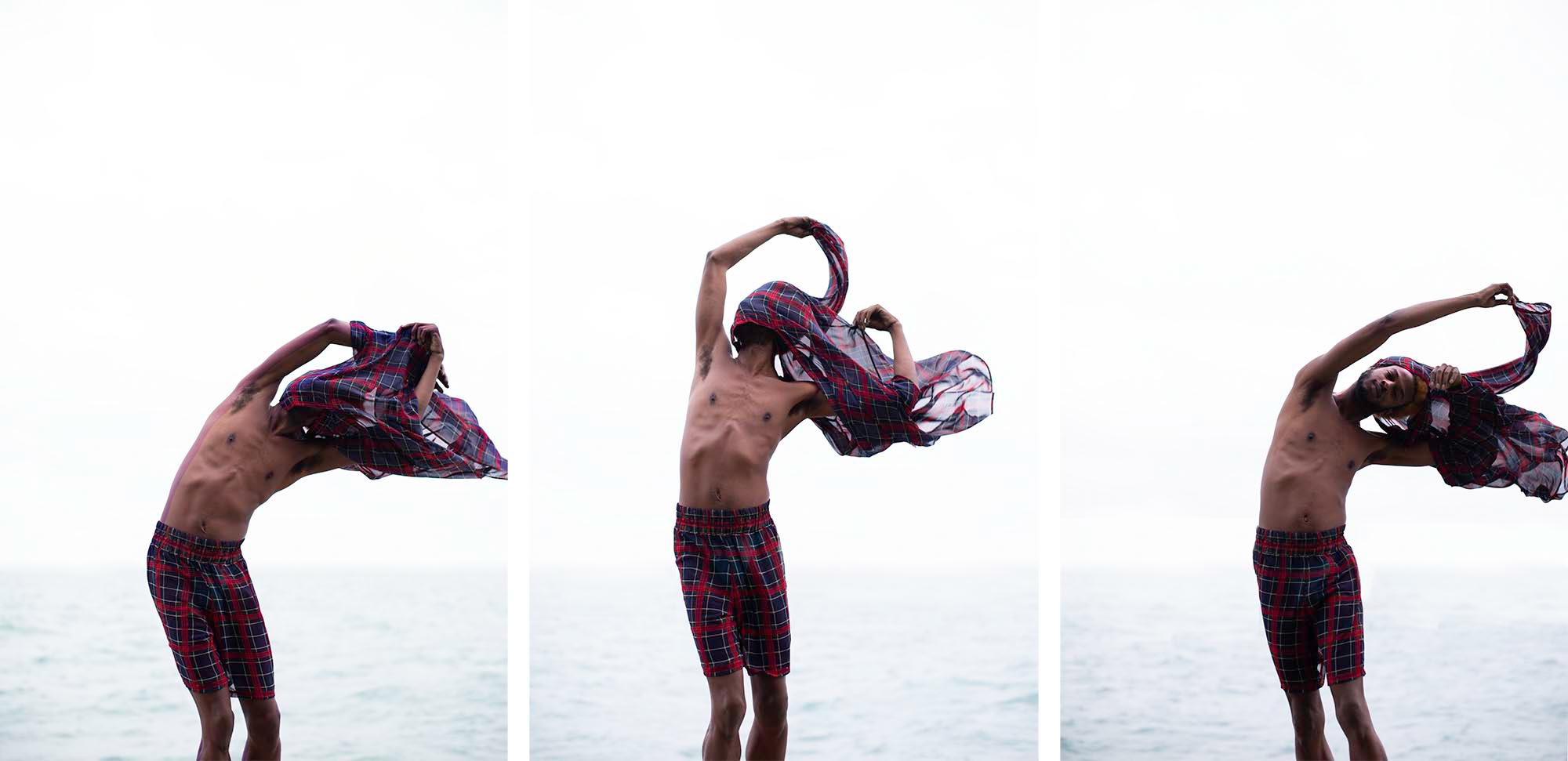
CR: The other morning, very early morning, we were talking about utopia. It’s something that I think about a lot in terms of the ways we live together, and the structures that we build around ourselves to make that living either support us, contain us, or control us. I mentioned this literary scholar, Hilary Strang, who wrote an essay about utopia in science fiction. She used the phrase “struggling toward utopia,” to describe the idea that utopia exists, all the time, but in these transient moments where groups of people are in alignment, working together toward the same goal. It’s not always here, but we’re always reaching for it.
CR: Have you experienced that, like at shows, or in spaces, within the Futurehood community? Moments of experiencing that nebulous idea that you’re reaching toward through Futurehood?
ELW II: Yes, I’ve definitely had experiences of euphoria and of sustained levels of like, peace and clarity based on these kind of group rituals. Like at the rave… There was a party we threw last year called Bang, with TRQPiTECA. There were a lot of moments at that party that felt like pure bliss, because it was like, us existing within the society and structures that we are often resisting, in a place of freedom, and we were allowed to express ourselves for hours with no fear or pressure. That was really beautiful. And, you know, when I was at the Solange show in Berkeley with my daughter Elijah [McKinnon], that was a phenomenal moment for me. That album, A Seat at the Table, really hit a chord with Black American youth, and our experience combating racism. I think that performance was choreographed beautifully and orchestrated in a way that led you to that place where it was like, even though we live in a society that makes us feel like that, isn’t it great that we get to feel like this? And that’s where the utopia exists.
CR: I experienced that show at the Hollywood Bowl in L.A., and it felt like we were all on a different planet, where everything was–
ELW II: But that planet is this planet. I don’t understand why we can’t accept that. I know why we can’t, because of the news, the news feed, and the constant video clips of people being battered, or killed, and the racists, and the bots, and the trash, and the op-eds, and the talking heads, and the sound bites that are constantly consumed for, you know, some sense of stability or grounded-ness, or some sort of false sense of awareness. But we live on planet Earth, which is actually, legitimately, a utopia, if you actually think about the way the planet works, and the way the universe works… like, if you think about it, you actually live in the most perfect place in the fucking universe, so like, act like it, you know? And like, call your mom, and love somebody.
CR: Right. It is this planet, and that’s part of what I like about this idea of utopia as attainable through collectivity and community.
ELW II: Yes. But I also believe that we have the ability to get off this planet, and build something new. Let them destroy this planet, and then the planet will destroy them, and then we can come back. But that’s a whole ‘nother movie.
CR: That’s another Oprah, as Darling [Shear] says. I had a conversation with Alok Vaid-Menon for Sixty a few months ago—they’re a queer, enby performer and activist, and they were saying how insulted they are when people tell them, “You’re from the future,” ’cause they’re like, “No bitch, I’m right now.”
ELW II: Oh, I’m not insulted by that because I don’t think time is linear, and I am from the future. Part of my radicalness is knowing that I do exist beyond this realm.
CR: Entirely. I think the issue is the implication that the world’s not ready for who you are or, or who we are, and what we are creating right now, you know?
ELW II: I was told that by a family member when I was expressing myself through fashion and being queer. He told me the world is not ready for gay people. And at that time, I mean, he was right. The world was not ready for gay people at that very, very, very moment. But I wasn’t dressing just for that moment. I was dressing for the future, girl.
CR: Perpetually…
ELW II: Oppression is learned, and people are constantly erasing, and trying to invalidate other people’s experiences because it might conflict with their experience. Maybe that person told me that because they weren’t ready, or they felt the society wasn’t ready for them, you know? But what I feel at this moment now, is that it doesn’t matter if you’re ready for me. You might not be ready for me. In fact, you probably aren’t ready for me because you’re not dressed appropriately. Do you see?
CR: Absolutely.
ELW II: So I know that you’re not ready for me, but that’s why I’m here to show you and guide you to a better place. That’s what my mother did for me. She guided me. It’s like, oh you weren’t raised right? Let me show you. And I think that’s what, like, the quote unquote Black man, or the Black artist, especially the Black film artists, have always shown America. Like, this is actually the way to do it.
CR: Yes. Can you talk about how the artists on the Futurehood label and artists operate in that way? Demonstrating other ways of being? Better ways…
ELW II: Yeah, that’s why I love Rozay Labeija, who put out Alchemy this year. He’s saying, “I am not a man, I am not a man.” He’s spurring a conversation, and breaking down ideas of gender, and what’s masculine and what’s feminine, is part of the process. Part of the problem is that we haven’t been having the conversation. We’ve just been policing the language. Roy Kinsey, who put out Blackie this year, and recently More Roy, is talking about what it feels like to be in a Black body, to have these legacies, and to be challenged with addiction, and the news feed, and the racism that is shoved down your throat on a day-to-day basis, to make you feel less-than. And from a queer perspective. I think these two conversations have been very important because, in the mainstream media, we’re still really not having those conversations. Even though we’ve had successes like Moonlight. What does it look like for two men of color to actually love themselves and love each other openly? Futurehood, because we have the audacity to have these conversations, that makes us important. It’s not that we are gay artists or gay rappers or anything like that. It’s the fact that we are artists managing what we want the world to look like, and doing that through our work and inspiring one another to elevate what that artistry can look like, sound like, and how it can be in conversation with one another.
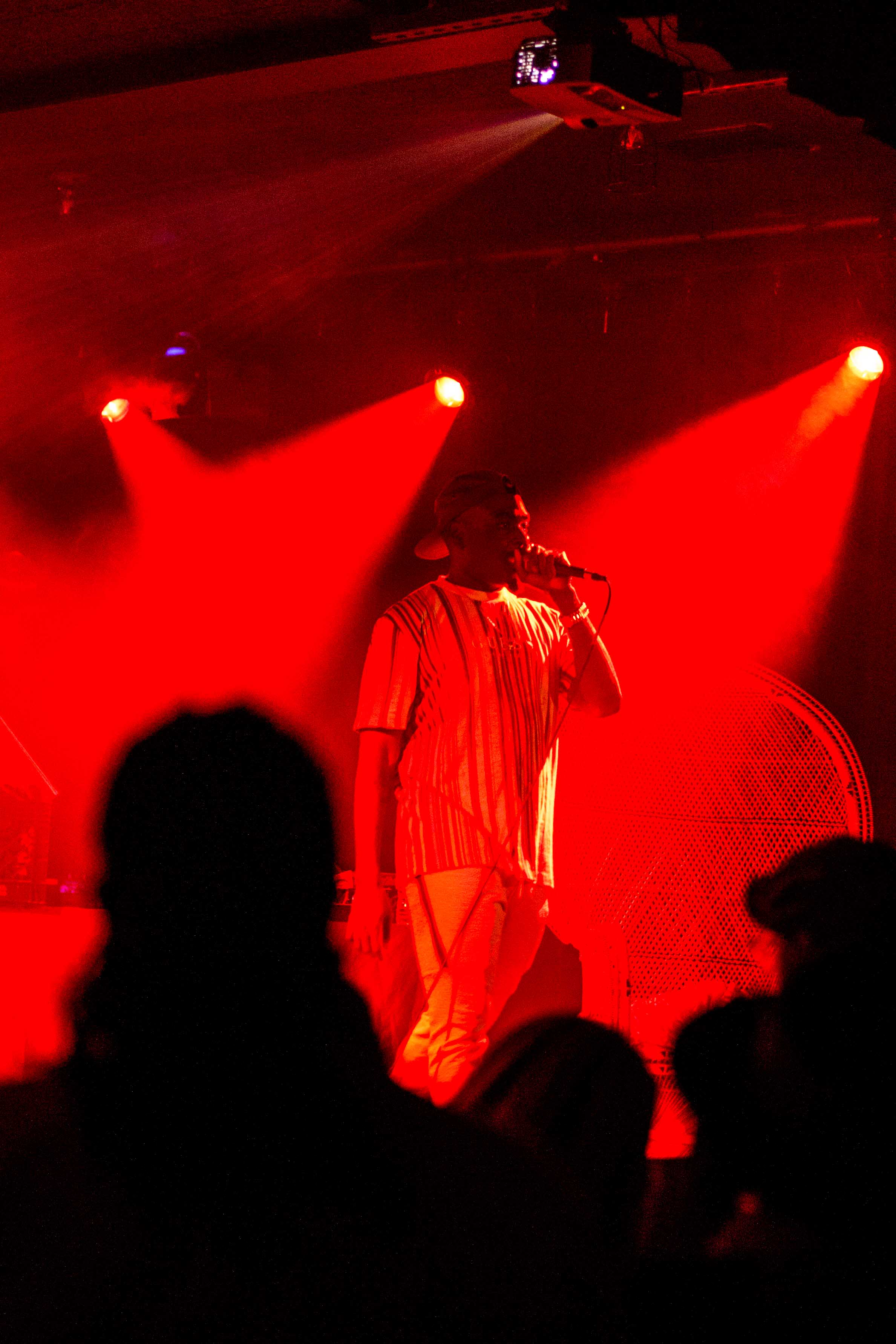
CR: That’s why art, and especially music, keep me optimistic. I think it’s the way that we see into the future. Politics is always 10 steps behind, and art is always 100 steps ahead. Good art anyway. By looking the best, having the most fun, and, just doing it better, we project that vision into reality.
ELW II: Yes, yes. I totally believe that. When I’m writing songs, and when I’m hearing things, I know something is a hit because when I hear the waves and I hear the frequencies, I can put myself in all of the futures in which that exists. That’s how you know what music is. It is space and time, like, working in concert. Pun intended. Sometimes my lyrics, when they come to me, they seem pre-written, you know? That’s why I love when rappers say, “These lyrics are delivered by God.” I do believe music is part of a divine connection. No matter what God you believe in, whatever name you use, it’s all the same thing.
CR: Michael Jackson, right?
ELW II: Right. Michael Jackson is telling me, Ariana Grande is telling other people. I mean, maybe it’s Prince, Ariana Grande, and Michael Jackson all together, but Ariana is still with us. It’s Aretha. It’s all the same being. You know, it’s all the same. We are one. So I feel like when we resonate with music that we consider to be a future, or futuristic, or innovative, we are listening to progression. We are listening to a frequency that is being sent here to push us or pull us in a certain direction. That’s exactly what Futurehood is here to do: to steer the ship.
CR: I want to circle back on something you mentioned a few times in talking about ideas of utopia or moments where it exists: The Rave.
ELW II: Oh, yeah. The Rave.
CR: Tell me about the power of the Rave.
ELW II: Well, I feel like, and this is something that I thought about talking about in this interview, because… binaries bother me, and deterministic morality truly bothers me, like the good and bad, but I do think there is dark and light. Or maybe dark, light, and then nothing.
CR: The void.
ELW II: Right. For a long time, I tried to deny my ability to be in the dark, or to enjoy being in the dark, or to act from a place of darkness, or to sustain darkness for the sake of secular pleasures, or escapes, or to really experience that forbidden fruit of like, “what is life?” Like how do you really consume it? For a long time I tried to deny that was something that was possible to exist within me. And then for a while it was something that I felt like I need to get rid of.
CR: The shadow work?
ELW II: Exactly, this is what I’m talking about. And now that’s where I’m like, oh no this is a part of me, and I need to explore this part of me in order to operate at my fullest potential and not just from one point of view.
CR: Do you feel like the rave is a place to explore that? To do the shadow work?
ELW II: Well, I feel like it’s a safer place to explore that. The rave is a place where you can yell and scream and stomp and fight and consume. It’s a place where you can tear down. It’s a place where you can be torn. And I think within that space you can do a lot of self-discovery. But if you stay in that space for the sake of, like, not actually doing the labor, then you can lose yourself.
CR: Right.
ELW II: And you can lose your life.
CR: Right, you can get lost in the darkness. Or mistake the darkness for light.
ELW II: Exactly. But it’s a space where I’m inspired, a space where I find a lot of truth about myself, and about the world around me. In the rave, I want to feel freedom in a way that is uninhibited by insecurity or social norms.
CR: Yeah, I think it’s a type of church for a lot of us. I’ve made a lot of connections with people in that space. So many mornings where so many ideas and beautiful conversations happen. When everything else is, like, worked through and stripped down.
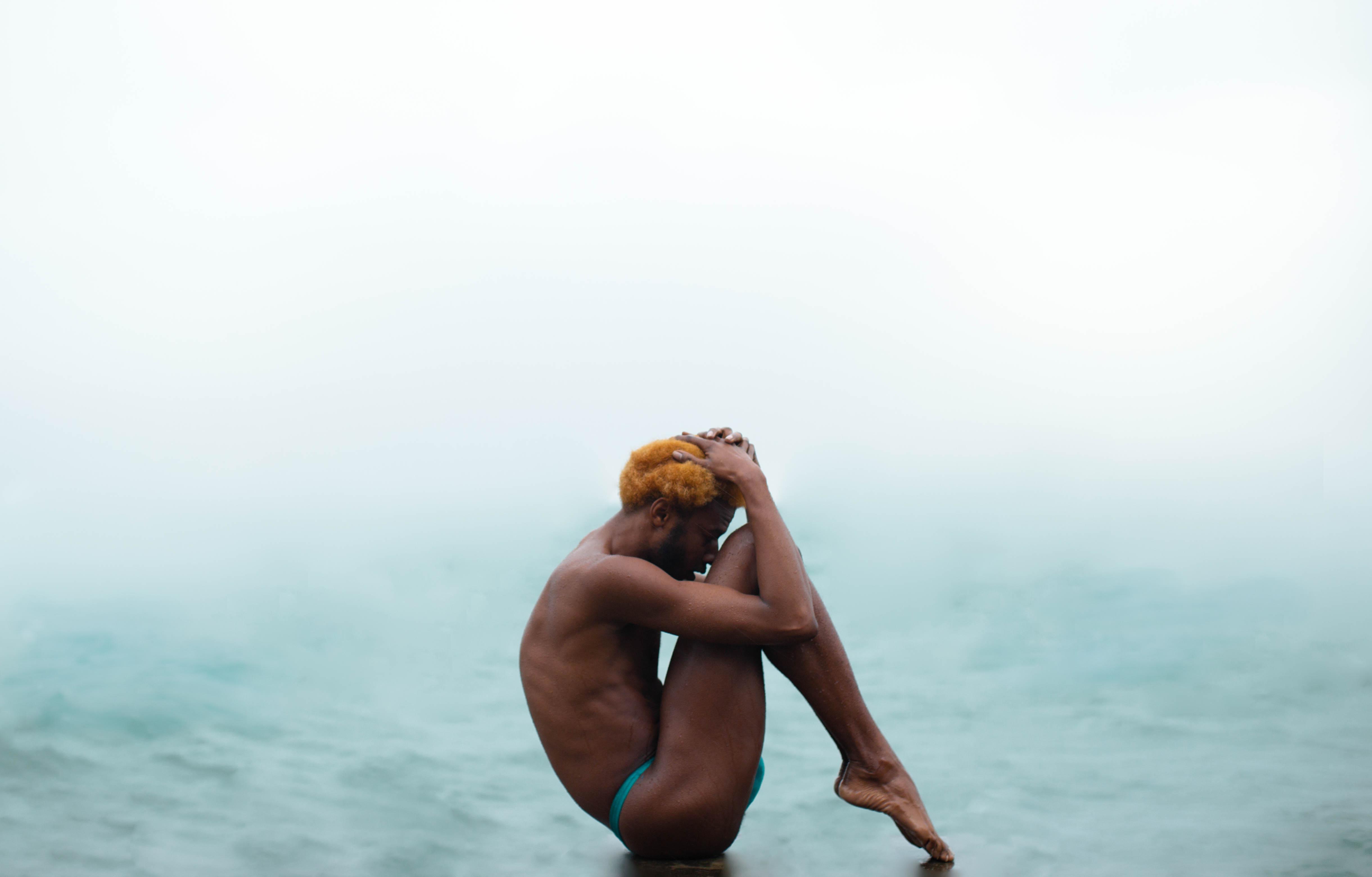
ELW II: Yeah, when everything is worked through. When all of the dark impulses have, like, had their opportunity to fixate or take reign, you often are left with truth and possibility and pureness. That is a place where exchange can be more free flowing, and that’s why I like to communicate in those kinds of spaces. That’s why I often visit those spaces or contribute my time for those spaces to exist for other folks, and to experience those, like, euphoric epiphanies.
CR: Euphoric epiphanies. Absolutely. To the rave!
ELW II: To the rave. But I’m to the rave and beyond, because, like I said, there’s a darkness that I feel a part of the queer community gets entrapped in, because there is so much trauma and a history of trauma. I’m worried that the babies are now starting to scam each other, consume each other, harm each other, and harm themselves through substance abuse or the abuse of their bodies or each other’s bodies. And I want to make it very clear that Cool Mom is not happy. That’s not what that is for. That it is a place and a process for liberation, and sharing. But I do believe there is a return to the light happening and balance often restores itself. I think the queer community is the vessel, as is Futurehood, to the future in which we are beyond consumption and capitalism. A place of sustaining and abundance.
CR: To that future and beyond. Thanks, Mom.
ELW II: No problem.
Featured Image: A triptych of Wallace standing in front of a body of water, taking of a sheer plaid shirt. Each image shows Wallace with the shirt over his head, in different postures, and points of disrobing as the shirt waves in the wind.
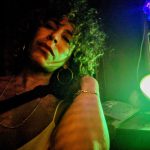 Chelsea Ross is a multi-disciplinary artist and curator based in Chicago.
Chelsea Ross is a multi-disciplinary artist and curator based in Chicago.
